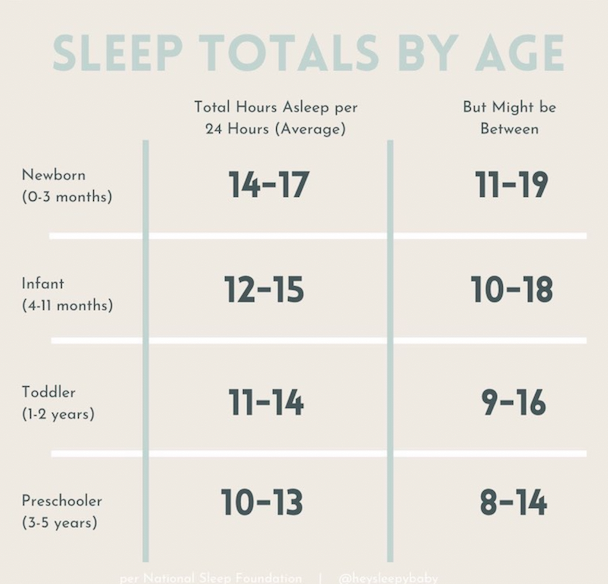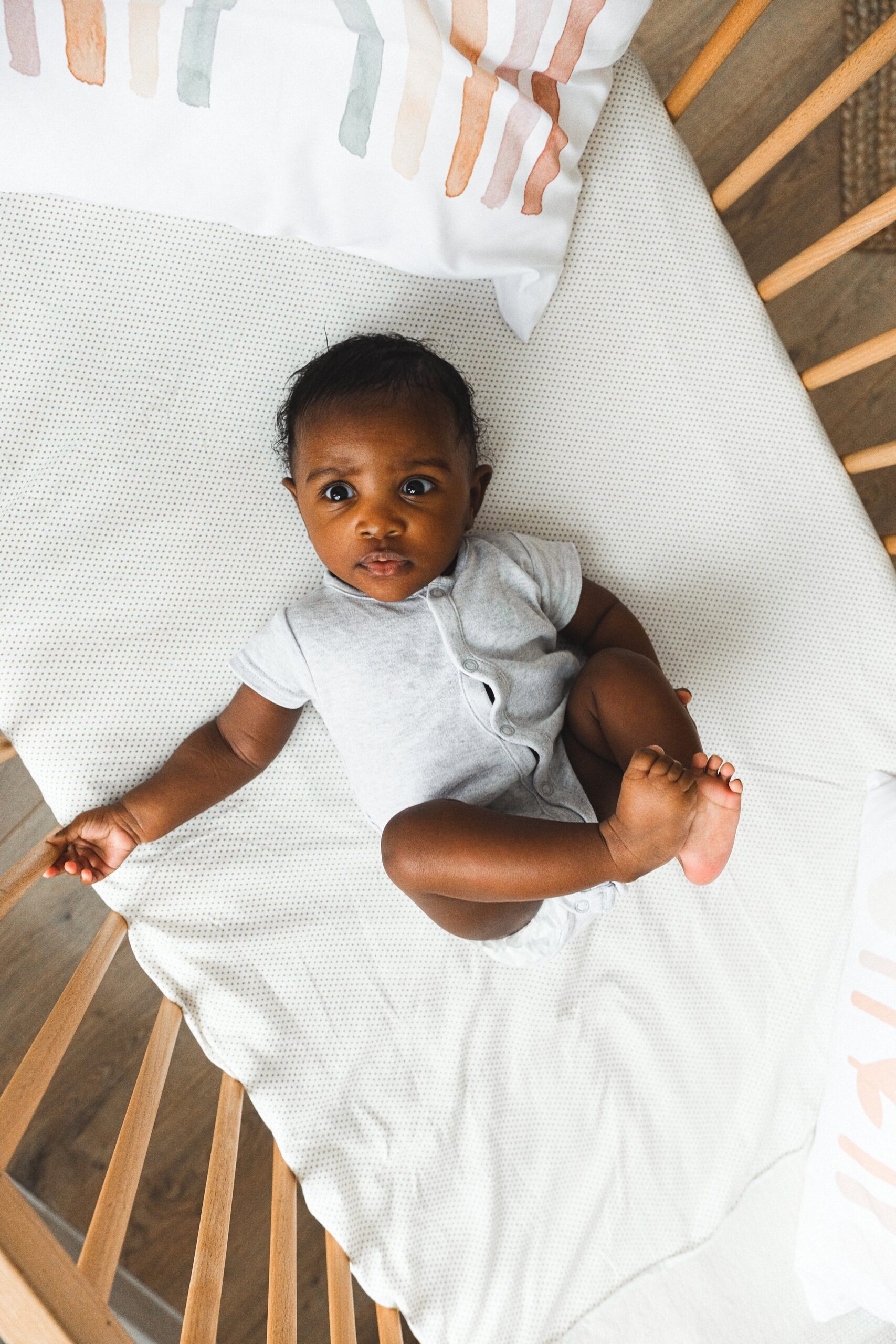What is sleep latency and why is it an important marker of baby sleep?
Sleep latency refers to the amount of time it takes in order for us to fall asleep. For adults (and some kids!) we would start timing our sleep latency beginning when we get into bed. For babies, we might start tracking this time when we begin to rock, nurse, cuddle, etc. our baby to sleep. For some babies that fall asleep without much parental support, you can begin counting sleep latency from the time baby is put down in their sleep space.
Sleep latency is a great way to assess whether or not your little one’s schedule is working well for them or not. Rather than focusing too much on exact nap times, wake windows, and bedtimes, looking at sleep latency can help you figure out if they might be overly tired or if they could use some more awake time!
Ideally, we want sleep latency to be more than five minutes but under thirty minutes. There’s a few reasons for this so let me explain why.
-
It can be a sign of overtiredness. If sleep latency is very fast and baby is passing out immediately, like under five to ten minutes, it can be a sign that they were very tired- potentially overly tired. If the sleep latency is that quick AND they are having very fragmented sleep at night or very short naps, waking up grumpy, etc., then you might want to consider shortening their wake windows or bringing their bedtime up a little bit earlier.
-
It can be a sign your baby is NOT tired enough! If sleep latency is twenty five to thirty minutes or more, this is a tell-tale sign that there is not enough sleep pressure built up. To put it simply, your baby is not tired enough yet. You might extend wake time or gradually push their bedtime later, by at least fifteen minutes at a time.
It can be frustrating and confusing if you are following a baby wake windows guide and your baby isn’t falling asleep within the recommended time frames. This is why I often suggest thinking about TOTAL sleep per 24 hours instead. The table below shows the recommended sleep totals by age.
You can check out more about sleep totals by age here.
Remember- every baby’s sleep needs are different! So, rather than stressing about the right wake windows, I recommend following baby’s sleepy cues and keeping an eye on sleep latency to get a general sense of your baby’s optimal wake time. This will help you assess if their nap & bedtimes are right for them, and can help things go much more smoothlyl!
Again, these are averages and it is MOST important to observe your baby and their general mood. If they fall asleep in 12 minutes or 22 minutes but seem fine when they fall asleep and appear rested when they wake, there is no need to stress! In general though, fifteen to twenty minutes for your baby to fall asleep is how you know you have found their sweet spot!





